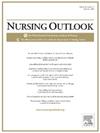Introducing the special collection on decolonizing nursing academia to enhance the success of students and faculty identifying as Black, Indigenous and people of color to create a pathway toward equitable health outcomes for underserved communities
IF 4.1
2区 医学
Q1 NURSING
引用次数: 0
Abstract
The nursing profession is considered one of the most trusted professions, yet it is not exempt from systemic racism that leads to exclusionary practices and ultimately impacts health outcomes for non-White communities. Like most Western institutions, academic nursing is informed by and centered in Whiteness, which values individualism, independence and competition and marginalizes the collectivistic and collaborative nature of most cultures of the Global South. This has important implications for the success of students and faculty who identify as Black, Indigenous and people of color. A destructive cycle is created when faculty are unable to succeed in academic environments, leaving students without role models and mentors with whom they can identify, and potentially results in a nursing workforce that does not reflect the communities we serve. Ultimately lack of representation in the nursing workforce erodes the trust of patients and families and endangers health outcomes for marginalized groups. As we endeavor to address health disparities for communities experiencing the greatest marginalization, we need to address the very foundations of the academic experiences for nurses by decolonizing the academic nursing space to ensure the success of all students and faculty. To that end, this special collection brings together 15 innovative and visionary articles that stimulate our imaginations to think beyond accepted norms in the academic sector to address disparities in nursing education and inequities in health outcomes.
介绍关于非殖民化护理学术的特别收藏,以提高黑人、土著和有色人种的学生和教师的成功,为服务不足的社区创造一条通向公平健康结果的途径
护理职业被认为是最值得信赖的职业之一,但它也不能免于导致排他做法并最终影响非白人社区健康结果的系统性种族主义。像大多数西方机构一样,学术护理以白人为中心,重视个人主义,独立和竞争,边缘化了全球南方大多数文化的集体主义和合作性质。这对那些认为自己是黑人、土著和有色人种的学生和教师的成功具有重要意义。当教师无法在学术环境中取得成功时,就会形成一个破坏性的循环,让学生没有榜样和导师,他们可以认同,并可能导致护理人员不能反映我们所服务的社区。最终,护理人员缺乏代表性侵蚀了患者和家属的信任,并危及边缘群体的健康结果。当我们努力为经历最大边缘化的社区解决健康差距时,我们需要通过非殖民化学术护理空间来解决护士学术经验的基础问题,以确保所有学生和教师的成功。为此,这个特别的收藏汇集了15篇创新和有远见的文章,激发我们的想象力,超越学术部门公认的规范,思考护理教育中的差异和健康结果的不公平。
本文章由计算机程序翻译,如有差异,请以英文原文为准。
求助全文
约1分钟内获得全文
求助全文
来源期刊

Nursing Outlook
医学-护理
CiteScore
6.20
自引率
7.00%
发文量
109
审稿时长
25 days
期刊介绍:
Nursing Outlook, a bimonthly journal, provides innovative ideas for nursing leaders through peer-reviewed articles and timely reports. Each issue examines current issues and trends in nursing practice, education, and research, offering progressive solutions to the challenges facing the profession. Nursing Outlook is the official journal of the American Academy of Nursing and the Council for the Advancement of Nursing Science and supports their mission to serve the public and the nursing profession by advancing health policy and practice through the generation, synthesis, and dissemination of nursing knowledge. The journal is included in MEDLINE, CINAHL and the Journal Citation Reports published by Clarivate Analytics.
 求助内容:
求助内容: 应助结果提醒方式:
应助结果提醒方式:


